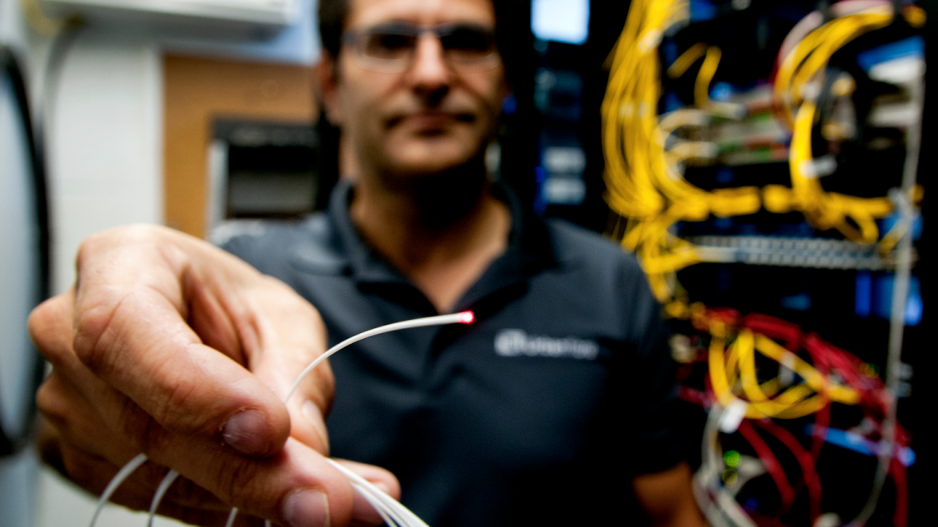When Telus (TSX:T) unveiled plans this month to spend $1 billion connecting its high-speed-fibre optic network to most of Vancouver, CEO Darren Entwistle promised to deliver speeds that would “dramatically change our society.”
The company envisions that gigabit Internet users will be able to download giant files in a flash, patients and doctors will connect through online video without delay and tech companies will come flooding into a city offering some of Canada’s highest speeds.
“It will start changing behaviour,” said Urbanfibre vice-president of product Jon Paul Janze.
Burnaby-based Urbanfibre already offers gigabit Internet to about 5,000 homes and businesses throughout Metro Vancouver, and it plans to have the service available in 30,000 homes in the next few years. Telus, meanwhile, wants to roll out its gigabit-enabled network to 400,000 homes and businesses within the City of Vancouver over the next five years.
The network can provide speeds of one gigabit per second (Gbps), the equivalent of 1,000 megabits per second (Mbps). At that rate, it would take someone only a minute to download two high-definition movies from iTunes.
Janze said such widespread access to these high speeds will accelerate current trends in business.
That means more people switching to mobile devices, more remote working and more reliance on backing up files on the cloud.
“Vancouver businesses need gigabit Internet – at the right price,” he said. “That’s the key. It’s not gigabit at any cost.”
Customers who subscribe to Telus’ Internet 150 service pay $120 a month for speeds of 150 Mbps, but it’s unclear how much the company will charge for gigabit service.
Telus does not plan to make gigabit speeds available to most customers when the fibre-optic network begins connecting to the first Vancouver homes and businesses next year.
Instead, customers connected to the ultra-fast network will have access only to speeds of up to 150 Mbps, not one Gbps like what Urbanfibre offers.
“More speed than that isn’t going to be helpful or necessary within a home environment,” Telus chief corporate officer Josh Blair told Business in Vancouver.
Rather, he said the company would enable one-Gbps home service further down the road as Internet capacity improves.
But Blair said tech-oriented companies capable of taking advantage of one-Gbps speeds would have access to the network’s full capacity.
“You think about Vancouver, with all its startups and a lot of the bandwidth-heavy industries, some in the film and animation industry, or just big-data industry, they’ll be able to take advantage of that right from the get-go,” he said.
Blair, who also serves as executive vice-president of Telus Health, said the rollout of ultra-fast Internet has the potential to change health care in Vancouver.
“For my parents, my wife’s parents, to be able to consult with their doctor over video in the future is going to be so much more effective and less hard on individuals than the traditional methods we have today,” he said.
Telus has already invested $1 billion in its health-tech division and has acquired electronic medical record companies including KinLogix and B.C.’s Wolf Medical Systems over the past four years.
It has also partnered with the provincial Health Ministry on a pilot program providing home health-monitoring services to patients.
Gerardo Iglesias, president of Vancouver-based Net eMedical Technologies, said the big investment in gigabit Internet also means more market potential for companies other than Telus.
“The better the results you will have for a number of applications, telemedicine being one of them,” said Iglesias, whose company develops software allowing clinicians and patients to communicate remotely.




